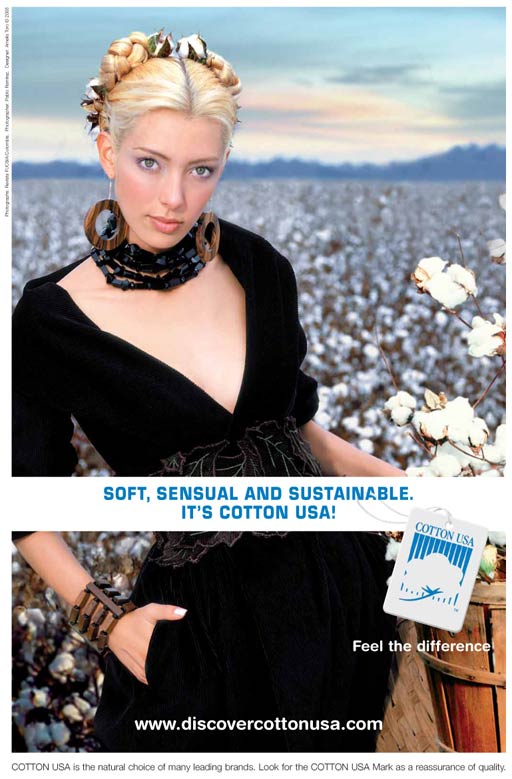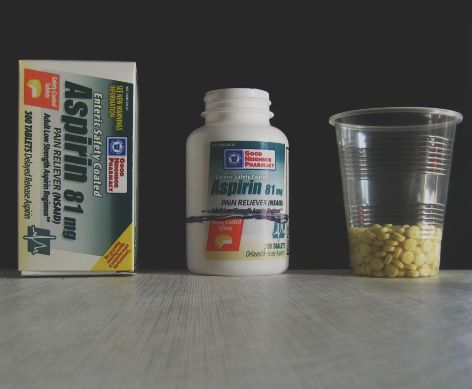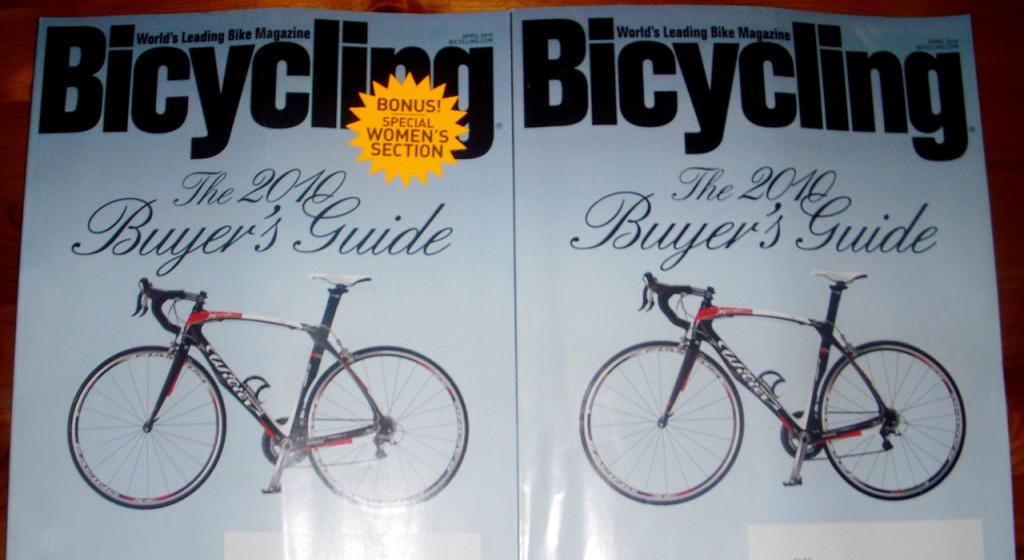Crossposted at Jezebel.
All my life my Grandfather has used the phrase “cotton pickin'” as a slur, as in “wait a cotton pickin’ minute!” and, if he was mad at you (or the dog), “You cotton pickin’…!”
It is debated as to whether the phrase refers to the act of cotton picking, which is tedious and painful work (because the edges of cotton bolls are prickly and sharp), or the people who picked cotton (highly disadvantaged groups, especially black slaves in the American south).
In light of this, it is fascinating that the cotton industry has decided to try and revamp its image by focusing on the act of cotton picking (as opposed to trying to make it invisible). In this recent Cotton USA ad campaign, sent in by Katrin, cotton picking is full-on romanticized: beautiful people in beautiful clothes decorated in cotton pick cotton in cottony cotton fields:
The image suggests that cotton is beautiful, natural, relaxing, comforting, and comfortable. Indeed, the new tagline for the campaign was: “Soft, sensual, and sustainable. It’s Cotton USA!” (source).
Interestingly, the U.K. has banned the language of this campaign, arguing that cotton is a highly destructive crop because it is both insecticide- and pesticide-intensive (i.e., not sustainable at all).
In any case, it’s interesting for me, as an American, to see a company try to romanticize an activity so closely linked with slavery. The Great Grandmother of my co-blogger, Gwen, picked cotton and she said that it was an absolutely miserable job. The cotton boll itself was prickly and sharp and she had to put her hand inside of the boll and pull the cotton out, such that it would leave both her hands ripped up. The harvested cotton was carried on her back under a beating sun. Agricultural labor is punishing, not pastoral.
Today, of course, most cotton in the U.S. is picked by machine, not beautiful 20-somethings (or Great Grandmas). Most of us would have no knowledge with which to challenge this images so, I suppose, that’s how Cotton USA gets away with such a ludicrous campaign.
See also romanticizing colonialism and our post on how mommies and daddies are baking Goldfish crackers in their comfy kitchens just for you!
Lisa Wade, PhD is an Associate Professor at Tulane University. She is the author of American Hookup, a book about college sexual culture; a textbook about gender; and a forthcoming introductory text: Terrible Magnificent Sociology. You can follow her on Twitter and Instagram.












